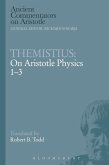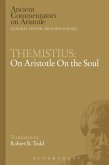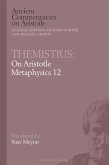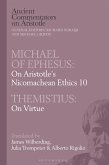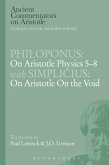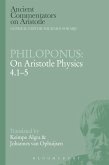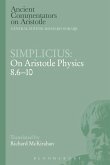Themistius' treatment of Books 5-8 of Aristotle's Physics shows this commentator's capacity to identify, isolate and discuss the core ideas in Aristotle's account of change, his theory of the continuum, and his doctrine of the unmoved mover. His paraphrase offered his ancient students, as they will now offer his modern readers, an opportunity to encounter central features of Aristotle's physical theory, synthesized and epitomized in a manner that has always marked Aristotelian exegesis but was raised to a new level by the innovative method of paraphrase pioneered by Themistius. Taking selective but telling accounts of the earlier Peripatetic tradition (notably Theophrastus and Alexander of Aphrodisias), this commentator creates a framework that can still be profitably used by Aristotelian scholars today.
Bitte wählen Sie Ihr Anliegen aus.
Rechnungen
Retourenschein anfordern
Bestellstatus
Storno



